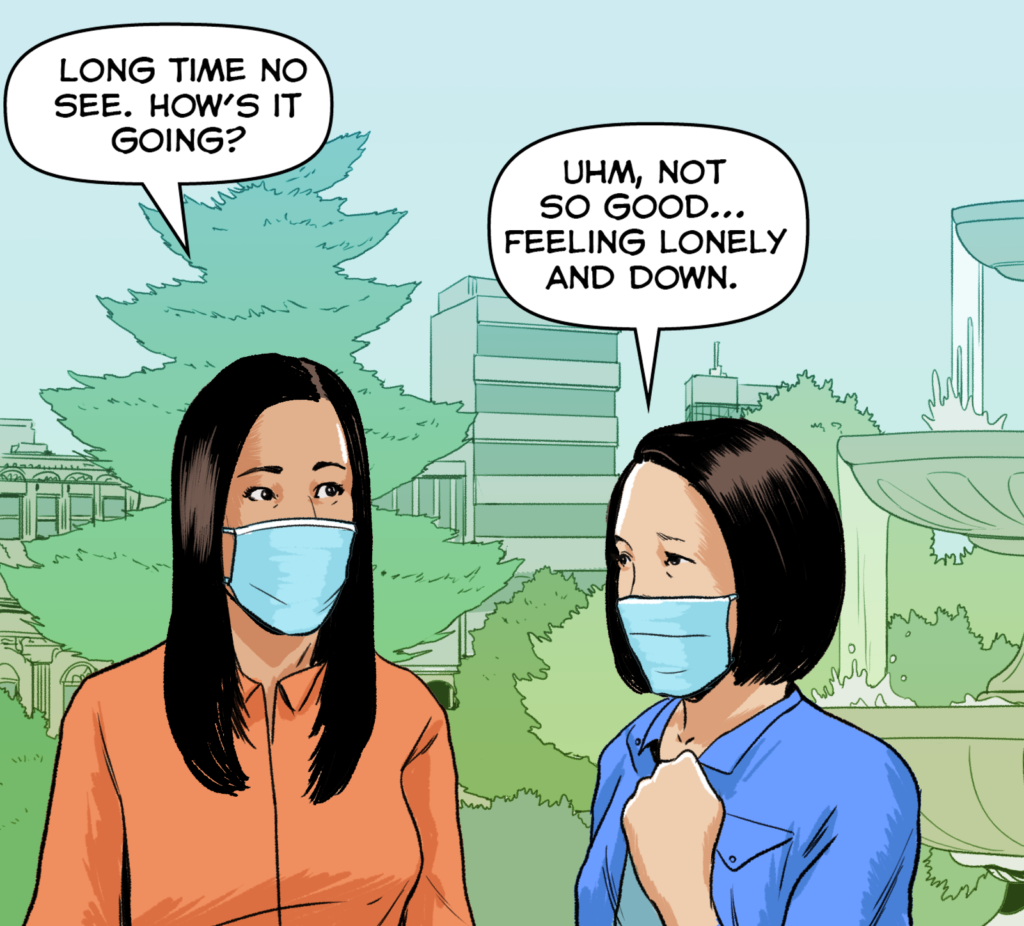CEH welcomes additional funding from the NWMPHN to address the mental health issues experienced by people from refugee and migrant backgrounds during COVID-19.
A total of $55,000 will be allocated towards the development of co-designed audio visual resources in five community languages including Dinka, Hindi, Vietnamese, Mandarin and Cantonese.
As part of the mental health response to the COVID-19 pandemic, the Australian Government is providing funding to support access to services for vulnerable people in the community who may be disproportionately impacted by the pandemic including people from migrant and refugee backgrounds.
The NWMPHN catchment is the most culturally diverse region in Victoria. 1.64 million people live within the NWMPHN catchment and of these 39.5% were born overseas. Over 7% of these people arrived in the seven months between January-July of 2016, and 27% between 2011-2016.
41.4% of the people in our region speak a language other than English at home. Melbourne LGA has a majority of residents who do not speak English at home, and in Brimbank the rate approaches two out of every three people. Of those in our region who speak English as an additional language, approximately 18% have low English proficiency.
Despite a significant population of people from refugee and migrant backgrounds residing in the NWMPHN catchment, the mental health service access data does not reflect this diversity.
People from refugee and migrant backgrounds may be experiencing additional barriers to accessing information and services, including digital services, because of the pandemic. Groups who may be at risk include people from refugee backgrounds, asylum seekers, migrant workers, and overseas students, non-English speaking people who do not have access to translated resources. The pandemic also negatively impacts cultural norms observed by some refugee and migrant backgrounds communities, for example, coming together for emotional support in a crisis which cannot be observed due to social distancing.
In addition to language and other barriers in navigating and accessing the health system, cultural factors such as taboos on discussing mental health or family violence may discourage individuals from seeking treatment for mental illness. To meet these needs, the health system in the region must be able to engage refugee and migrant backgrounds communities through culturally appropriate response and in partnership with local community services.
Despite a lot of information about COVID-19 and its impacts on physical and mental health wellbeing produced and distributed the messages are not reaching people form migrant and refugee backgrounds due to language, literacy, and cultural barriers. A lot of information about accessing services to support people through the pandemic is either only in English, poorly translated or only in written form which often prohibits people with low literacy levels accessing them. Older community members may be illiterate and rely on verbal and visual information sources.
Feedback from community members suggests that any health information needs to be developed in partnership with the community to ensure that language and messages are culturally appropriate. The information also needs to be developed in community languages or be translated. Often audio-visual resources are more accessible to those community members with low level of reading literacy in their own language. It is also important to distribute the information via different communication channels including social media, community newspapers and radio to ensure that older members of the community also can access it.
Alison Coelho said, “that during the pandemic, both physical and mental health have come to the forefront of our minds, particularly for Victorians. This project is important because it utilizes community wisdom and conceptual understanding of things the broader community may take for granted. Often accepted strategies to help cope and support mental health and wellbeing are often not culturally well understood or relevant. We are pleased to be working on the project that enables a community led approach.”
Anti Viral – COVID SAFER
View CEH’s MHSS co-designed comics focusing on young people during the COVID-19 pandemic HERE

